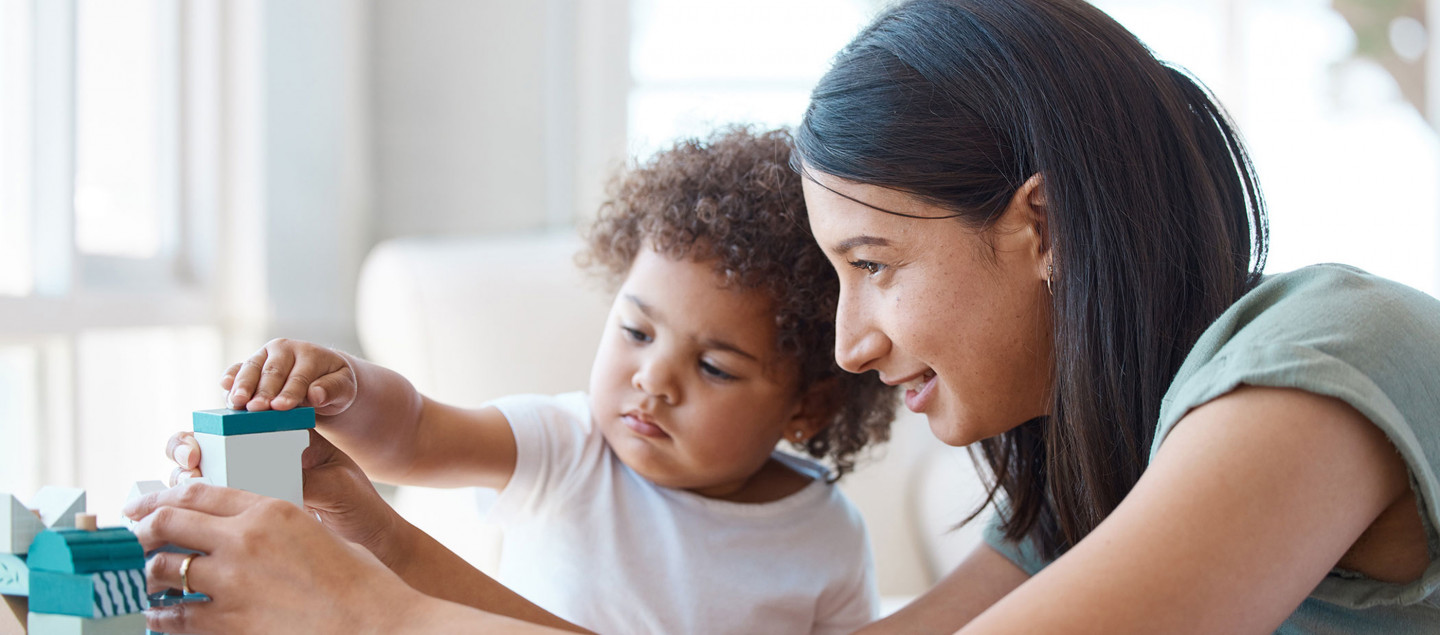How you interact with your kid could shape how they play with their peers

The way parents and their children play together may be the framework for how kids will treat other children, according to a recent study from the University of Georgia.
Figuring out how to approach new social situations is key for toddlers, and research suggests that caregivers play a big part in giving kids a script to draw from.
The new study found the way mothers and toddlers interacted during play predicted how the children later interacted with other kids.
“It’s not just what the mom does when they’re interacting, and it’s not just what the child does when they’re interacting,” said Niyantri Ravindran, lead author of the study and an assistant professor in UGA’s College of Family and Consumer Sciences. “It’s really about how their behaviors are occurring together. That back-and-forth dialogue between the mother and child is contributing to how children are interacting with their peers.”
Caretakers help kids practice for future social situations
The study drew from data collected at the University of Illinois. Researchers brought more than 120 mothers and their toddler-aged children to a lab playroom to observe how they interacted while playing.
The researchers followed the children through their preschool days, examining how they interacted with their friends while playing.
After six months, the researchers paired children with kids they had never met and observed how the pairs interacted. Later, when the children were around 4 1/2 years old, researchers brought the participating children in to play with a close friend.
The researchers focused on two main types of behavior: responsiveness and assertiveness.
Children who were receptive to the suggestions of their playmate and enthusiastic about playing with them scored high on responsiveness.
While many may think assertive behavior equals aggressive behavior, assertiveness in this study meant that the children took initiative, like inviting another kid to play or coming up with ideas for games.
Mothers and children had a strong connection if the mother was sensitive to the child’s behavior and the child responded positively. When they showed this dynamic during play, those children were more likely to show the same responsiveness with their friends.
Similarly, when mothers were sensitive and children were assertive during play, those children were more likely to be assertive with kids they didn’t know.
Assertiveness is a needed skill when meeting new peers
Meeting someone new can be nerve-wracking for many kids. They need the confidence to take initiative and assert themselves in a respectful way. With a friend, however, they know what to expect, so responding feels more natural.
Interacting with someone new requires different skills than spending time with a friend.
“You don’t want a child to be completely only compliant and never really taking the initiative,” said Ravindran. “Neither do you want a child who is bossy and never listening to the other kids’ suggestions. Having a balance between those two behaviors could help result in more socially competent children.”
Play helps build social skills
Caregivers play a large role in how children develop social skills and not just because they are their children’s primary role models. How kids and parents interact serves as practice for new social situations.
Most of the time, parents are in charge. They decide the rules their children follow and what their kids can or can’t do.
When playing, that hierarchy breaks down. Kids are free to tell their parent what they want and how they want to play.
“You’re going to guide your child, teach them and show them how to do things, but it’s also just as important to follow their lead sometimes,” said Ravindran. “That can really help balance out those behaviors.”
This study was published in Developmental Psychology and co-authored by Nancy L. McElwain of the University of Illinois’ Department of Human Development and Family Studies.
This article was written by Sydney Barrilleaux with the UGA Division of Marketing and Communications.
In this category: Family
-
Kogan recognized for advancing family-centered prevention science
Professor honored by Society of Prevention Research for decades of work related to families

-
Geier named college’s first associate dean for research
HDFS professor will enhance college's research infrastructure

-
Hargrove named assistant director of UGA Love and Money Center
Licensed marriage and family therapist will teach graduate-level courses and lead outreach efforts

-
Lack of sleep disrupts key brain functions in adolescents
More sleep could protect children’s mental health

-
How you interact with your kid could shape how they play with their peers
Playtime between caregivers and kids teaches toddlers important social skills
